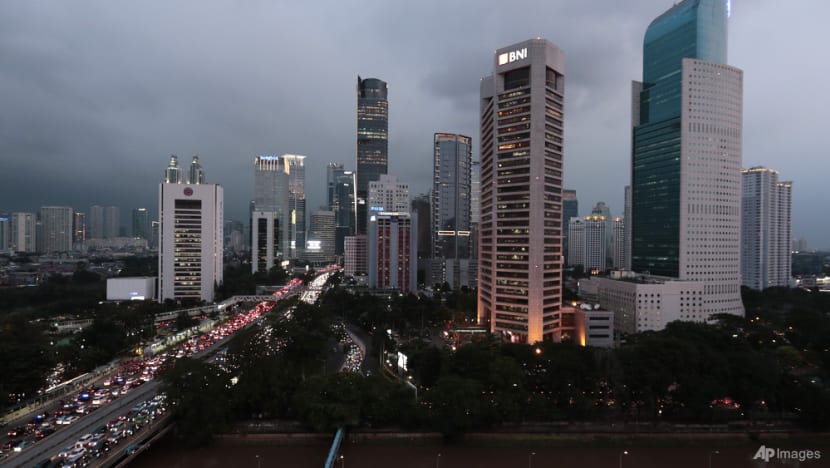Indonesia to issue Golden Visa policy in one to two weeks: Minister

JAKARTA: Indonesia's Golden Visa policy - which will waive visas for foreign companies or foreigners who make a large investment in the country - will likely be issued in one or two weeks, said Coordinating Minister for Maritime and Investment Affairs Luhut Binsar Pandjaitan on Tuesday (Aug 1).
According to Tempo, companies wishing to obtain the Golden Visa must make a real investment of at least US$50 million. Meanwhile, for individuals, the investment value in government bonds is at least US$350,000.
Mr Luhut reportedly said that his ministry had just discussed the policy with President Joko Widodo and a number of ministers.
He said that the Golden Visa policy would later target highly knowledgeable foreigners including researchers from some of the world's leading universities. The visa could also be given to artificial intelligence (AI) developers, he reportedly said.
Mr Luhut announced that Mr Widodo, or Jokowi as he is more commonly known, has prepared a Golden Visa for OpenAI chief executive officer Sam Altman, according to CNN Indonesia. OpenAI is the company that developed the popular AI-powered chatbot ChatGPT.
Indonesia is not the first country in the region to offer special visas attracting high-skilled talent and investments.
Over the past two years, Thailand opened applications for its new Long-Term Resident visa while Singapore unveiled its Overseas Network & Expertise Pass (ONE Pass). A two-year visa programme known as the Top Talent Pass Scheme was also opened in Hong Kong.
Indonesian Immigration director-general Silmy Karim on Tuesday noted that the Golden Visa policy would benefit the government because apart from the visa being highly selective, those looking to acquire the visa must invest a large amount into the country.
"They have to make a real investment, not just on paper, not just a notary's deed. We will monitor the amount and also the activities," Mr Silmy was quoted as saying by Tempo.
According to Tempo, eligible applicants can get a multi-entry visa that is valid for five to 10 years. They can later conduct business and other activities in Indonesia.
Mr Silmy added that the Golden Visa policy is one of the government's ways to screen qualified individuals from overseas entering Indonesia.
"Many countries have had success with issuing Golden Visas, such as the UAE (United Arab Emirates), Singapore, then several European countries and the United States.
“Indonesia needs to implement this policy," he reportedly said.
In a statement on Apr 2, the Political, Legal and Security Affairs deputy of Indonesia’s Cabinet Secretariat, Lusia Novita Sari, said that the Golden Visa policy is part of Widodo’s efforts to increase the inflow of foreign investment into Indonesia.
Visa programmes offered in other countries have seen varying results.
Before Thailand’s Long-Term Resident visa was introduced, the Thailand Elite project - costing holders between US$17,400 to US$58,000 - was set up to attract foreign talent. According to Fulcrum, the project attracted only about 15,000 visa holders in its 18-year run.
Meanwhile, the Top Talent Pass Scheme in Hong Kong, a programme for those earning more than 2.5 million Hong Kong dollars (US$320,600) a year and for those graduating from the world's top 100 universities, has fared better.
The scheme saw 49,000 applications approved just five months after its launch in Dec 2022, exceeding the initial target of 35,000. However, nearly 95 per cent of applicants were from mainland China.
Meanwhile, Singapore’s ONE Pass program has received "very positive responses" since its announcement last August, Singapore's Economic Development Board (EDB) managing director Jacqueline Poh was quoted as saying by Nikkei Asia in January.
Experts have pointed out that beyond the offer of a long-term stay, a well-rounded package would do well to attract foreign talents, noting that lifestyle choices play a role in influencing foreigners’ decision to take up a special visa.
Dr Dennis Hew, a senior research fellow at the Lee Kuan Yew School of Public Policy, told CNA that countries have to realise that foreign talents are pulled by a “total package” and not just a long-term visa.
“This includes good international schools (for their children), good infrastructure (especially digital infrastructure) and access to highly skilled workers (close proximity to world-class universities),” said Dr Hew.
“Having a good legal and financial infrastructure will be important as well to attract foreign companies to invest.”
He added that having a large English-speaking population would help as it is still the international language of business.
“Indonesia should draw lessons - and failures - from other countries that have similar visa policies,” he said.
Meanwhile, Miguel Latorre, managing director of VISTRA Indonesia and Malaysia, said that the golden visa is a sign that the government is being proactive and listening to the concerns of the business community, according to the Business Times. VISTRA is a corporate business services provider.
“The question is whether such talent will still be attracted to come to Indonesia, given the competition from places like Singapore and Dubai which offer much better lifestyle choices,” he reportedly said.
“I expect the golden visa will boost the talent pool, but it remains to be seen as to just how successful it will be.”
Additional reporting by Rhea Yasmine Alis Haizan.


















